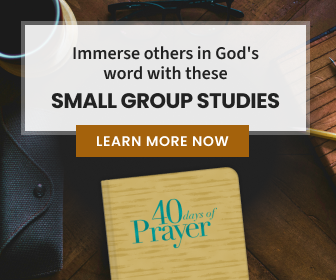Fellowship
10 Things to Think About Before Starting a Small Groups Ministry
1. Know where you are headed
When you consider a believer, a follower of Christ in your church, what is it you want them to look like and act like? What is it you want them to “be”? Too many churches start up a small-groups ministry because it’s “the thing to do.” But it may not be the thing to do. Once you know what you want, then you can back up and decide what will get you there.
At Saddleback Church, we want followers of Christ to balance the Great Commission and Great Commandment in their hearts. We want to see them belonging to Christ and His church, growing deeper in Him, serving God where they are gifted, sharing Christ and surrendering every aspect of their life to God. That is spiritual health for us. Check out our Spiritual Health Assessment.
What do you want? Once we knew our “end in mind,” we asked the question: What will get us there? Our answer came from Acts 5:42, and it involved a combination of weekend services and small groups.
2. Find the lay of the land in your church.

Talk to people. Talk to the key opinion leaders in your church—and if you don’t know who they are, ask around! Get the people who built the church and go through step one above. Find the history of the church and the passion that made your church what it is today. What’s the heartbeat of your Lead Pastor? What makes them tick? What is their strategy to number one?
Before you ask any of these questions, ask yourself something: Do I have the relational capital to ask these questions? If you do, great! If you don’t, take the time to get to know the people that need to hear these questions. Relationships take time. Sometimes you will find the answers to the questions without even asking anything.
3. Who will run point?
Paid or not paid isn’t the question when it comes to this point—passion is the question. Who has the passion for the people to be the healthiest followers of Christ in your church? Who has the passion to build a delivery system that can handle the people God will send your way? Who has what Psalms 78:72 describes in David? Who has the humility of knowing it’s not “them” but “God” (1 Corinthians 2:4-5)? Who is willing to do “whatever” (John 10:10) with the right attitude (1 Peter 5:2-4)? Who is “called” and willing to learn?
4. Who is on the team?
Every leader needs a team. If you were to start a business you would get your “C” team together—CEO, COO, CIO, CSO, CTO, and so on. So who is your “C” team, your Christ Team, to make this happen with His grace and strength? Start praying for people who want to see the same thing you want to see and who have different gift sets than you.
Then, ask them to join you. People won’t volunteer; you need to ask them. Claim back some of their 168 hours a week for Kingdom work. For some, you may need to align their Kingdom work for greater Kingdom efforts.
5. What will be your strategy?
At Saddleback Church, the best way for us to start a small-groups ministry is through a campaign strategy. Now, understand that if you don’t go through the process outlined above, running a campaign in your church will start a bunch of groups, but they will probably be purposeless and drift. (Click here to learn more about our Campaign Strategy)
Along with strategy, you need a culture to drive the strategy. Campaigns are successful at Saddleback because throughout the year our people hear from the pulpit the importance of small groups—through testimonies, sermons, commercials, and most importantly through personal stories of the teaching pastors in their sermons.















